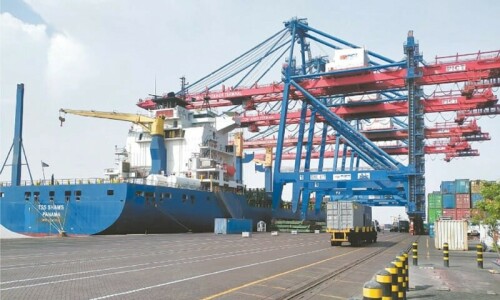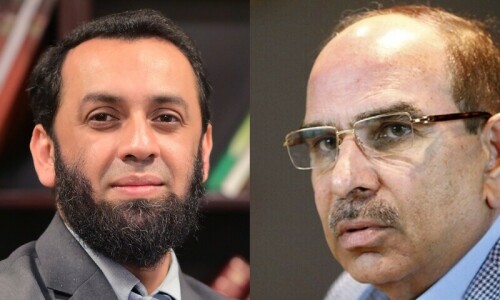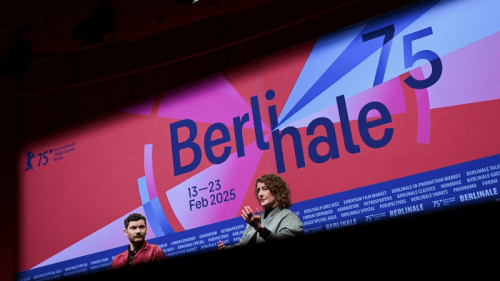The Kot Addu Power Company — 15 generating units (multi fuel-fired power plant: gas, furnace oil and diesel) with a nameplate capacity of 1,600 megawatts — is the single largest Independent Power Producer (IPP) in the country.
Kot Addu Power Company (Kapco) sells the electricity it produces to a lone customer — Wapda — under a Power Purchase Agreement (PPA). Since the current PPA is valid up to 2021, many energy analysts wonder what would happen after the expiry of the period of the agreement.
When this query was put to the company’s General Manager Finance/Chief Financial Officer, Mr M. Mohtashim Aftab last Thursday, he told this writer that the company was entitled to re-negotiate a new tariff with the government (the National Electric Power Regulatory Authority (Nepra) and the Central Power Purchasing Agency (CPPA-G)) two years before the expiry of the current contract. “It shall be taken up in June 2019”, he said.
There was great enthusiasm on the Kapco’s setting up a 660MW coal-based power project with the then projected cost of $1 billion. Last year, the project site was shifted to Muzaffargarh, from earlier plans to put up the plant in Sheikhupura.
The construction progress slowed down after the government’s sudden ban on fresh investments in power generation based on imported fuel. Mr Mohtashim confirmed last Thursday that the company had to abandon the project.
A year’s worth of cost, energy and time has gone to waste due to the government’s ad-hoc policy decision.
The Kapco CFO said that converting the power plant from imported to indigenous coal was not a viable option. He explained that the transportation cost of Thar coal to Muzaffargarh would be exorbitant. Moreover, the local coal is ‘ignite’ and would have required adding water before transportation which would increase its weight and therefore costs.
Circular debt cripples the cash flow of the entire energy chain. In Kapco’s directors’ report appended to the accounts for the half year ended Dec 31, 2017, released on Feb 22; the company CEO Aftab Mahmood Butt informed: “The ‘off-taker’ (referring to Wapda) continues to default in payments to the company”.
He stated that on Dec 31, 2017, the overdue receivables from the ‘off-taker’ amounted to Rs86bn. The company continues to pursue the ‘off-taker’ and concerned Ministries in the government, for resolution of the matter.
On Dec 31, 2017, the accumulated amount of liquidated damages invoiced to the company amounted to Rs28bn for the period 2008-09 to June 30, 2016. Kapco disputes the claims (of Wapda) for the imposition of liquidated damages in accordance with the provisions of the Power Purchase Agreement (PPA).
Mr Aftab Mahmood Butt asserted that during the second quarter to Dec 31, combustion inspection of four gas turbines; hot gas path inspections of three gas turbines and major overhauling of one steam turbine was completed as per plan.
KAPCO posted a profit after tax (PAT) at Rs4,395 million, translating earning per share (eps) at Rs4.49 for the half year ended Dec 31, 2017, up by 5pc over the PAT at Rs4,172m (eps Rs4.74) in the similar half year for the earlier year. In the second quarter (Oct-Dec 17) earnings jumped by 19pc over the previous similar quarter.
Alongside the results, the company also announced a cash dividend of Rs4.35 per share. Analysts Tahir Abbas and Rao Aamir Ali who follow Kapco for stock brokerage firm Arif Habib Limited mentioned major highlights that included net sales at Rs18,445m during second quarter 2018 (2QFY18), up by 21pc over the previous comparable quarter.
The upsurge was attributed to about 17pc higher prices and higher dispatches by 37pc to 1,582 GWh (Load Factor: 55pc).
In 1HFY18 a similar trend was witnessed with sales up by 22pc to Rs40,016m over the corresponding half of earlier year (YoY), again primarily due to 14pc higher furnace oil prices and dispatches increasing by 15pc to 3,476 GWh (Load Factor: 60pc).
Gross margins witnessed a decline of 172bps to 17pc during 2QFY18. The decline in margins was on account of higher dispatches.
Other income of the company witnessed a growth of 30pc YoY to Rs2,983m due to a higher level of overdue receivables (up by 18pc YoY as of Sep’17, an average level at Rs78.5bn). Finance cost saw an increase of 57pc YoY in 1HFY18 due to higher reliance on short-term borrowings.
Paid-up capital of Kapco at Dec 31, 2017, stood at Rs8.80bn in 880.25m outstanding shares. The company maintained a comfortable cushion of ‘unappropriated profit’ amounting to Rs23.5bn. Total assets stood at Rs123bn.
The Kapco stock stood quoted at the stock market last Thursday last at Rs60.40 a share. From investors’ point of view, the stream of dividend payouts by the company makes its stock a ‘preferred defensive play’ in the energy sector during uncertain times in the market.
But for all that, analyst Rafia Hanif at BMA Capital Management Ltd highlighted major issues that could impede company progress going forward, including ambiguity over PPA extension, continued delay in the privatisation of the company and technological obsolescence.
Published in Dawn, The Business and Finance Weekly, March 12th, 2018















































Dear visitor, the comments section is undergoing an overhaul and will return soon.